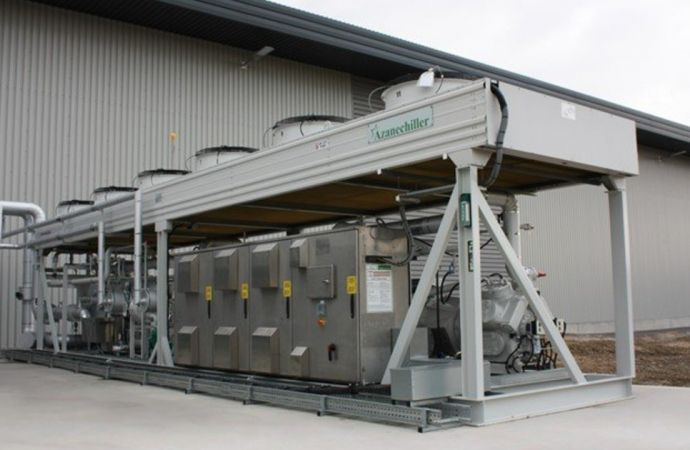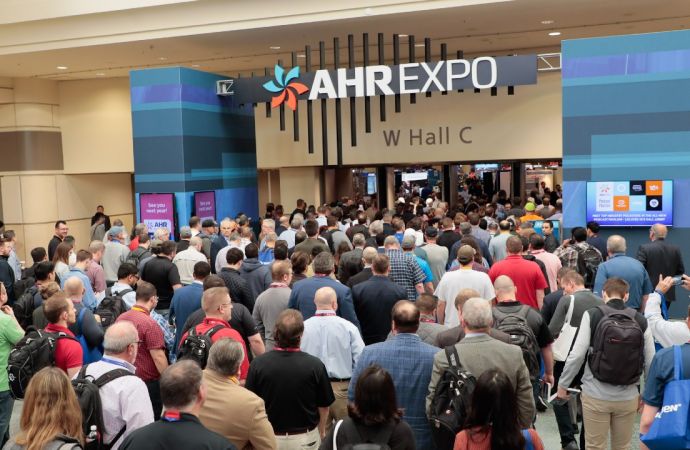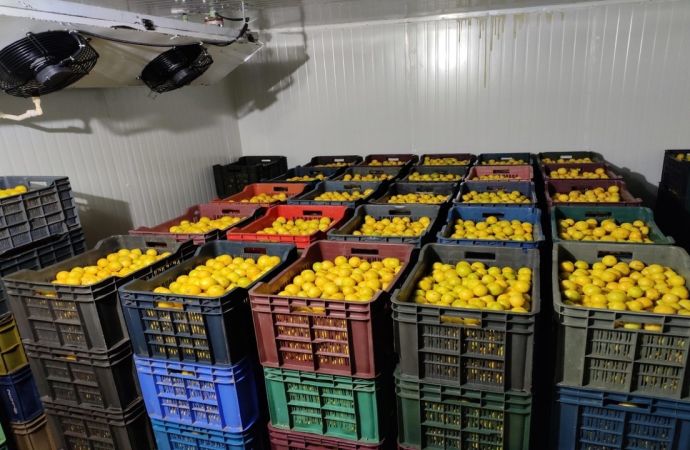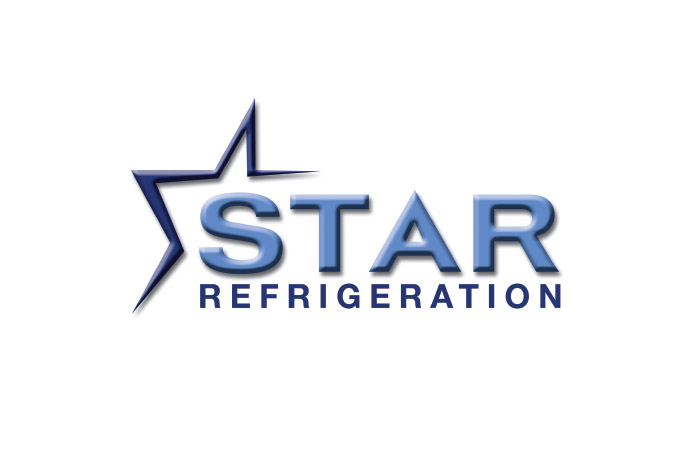Its Envi CO2 systems and Azane low-charge ammonia units can save industrial operators energy, Star says.

Star's AzaneChiller 2.0
Glasgow, U.K.-based Star Refrigeration is promoting adoption of its industrial CO2 (R744) and ammonia/NH3 (R717) refrigeration systems as a way for industrial operators in the U.K to reduce their energy costs and climate taxes while helping the country achieve its net-zero carbon goal by 2050.
U.K. cold chain operators are required to pay a Climate Change Levy (CCL), a tax added to electricity and fuel bills. However, they can obtain up to a 90% reduction on the tax by striking a voluntary Climate Change Agreement (CCA) with the government to reduce 6.67% in relative energy usage by 2022 against the base year of 2018.
The best way to cut energy usage and achieve a “greener cold chain” is by adopting low-carbon refrigeration technology, said Star in a statement. “This means upgrading the condensers, compressors, control systems and maintenance protocols, as well as selecting a refrigeration plant which runs on a low GWP refrigerant.”
To that end, Star recommends its pre-engineered low- charge ammonia and CO2 refrigeration technology, “which has been proven to significantly exceed the minimum energy performance standards set by the Ecodesign for Energy Related Products Regulations as well as the UK’s ‘Best Practice’ guidelines.”
In particular, Star cited its The AzaneChiller 2.0 and the AzaneFreezer 2.0,both ammonia–based refrigeration systems, and, for smaller applications. itsEnvi range of CO2 solutions, which “additionally offers low capital costs.”
“With climate change and environmental concerns an increasingly urgent item of the global agenda, the focus has to be placed on finding more efficient and sustainable ways to deliver cooling,” said Dr. Dermot Cotter, Managing Director of Star Technical Solutions, Star’s technical consultancy.
“The use of energy-efficient technology, alongside enhanced protocols and operational adjustments, can help temperature controlled storage and distribution companies pull in the right direction towards meeting CCA targets and a greener future.”
Star has also recently called for a more proactive and predictive approach to maintenance of industrial refrigeration systems, arguing that a traditional “reactive” approach is too costly, considering the total life-cycle cost of systems.
With climate change and environmental concerns an increasingly urgent item of the global agenda, the focus has to be placed on finding more efficient and sustainable ways to deliver cooling.”
– Dr. Dermot Cotter, Star Technical Solutions
Related stories




